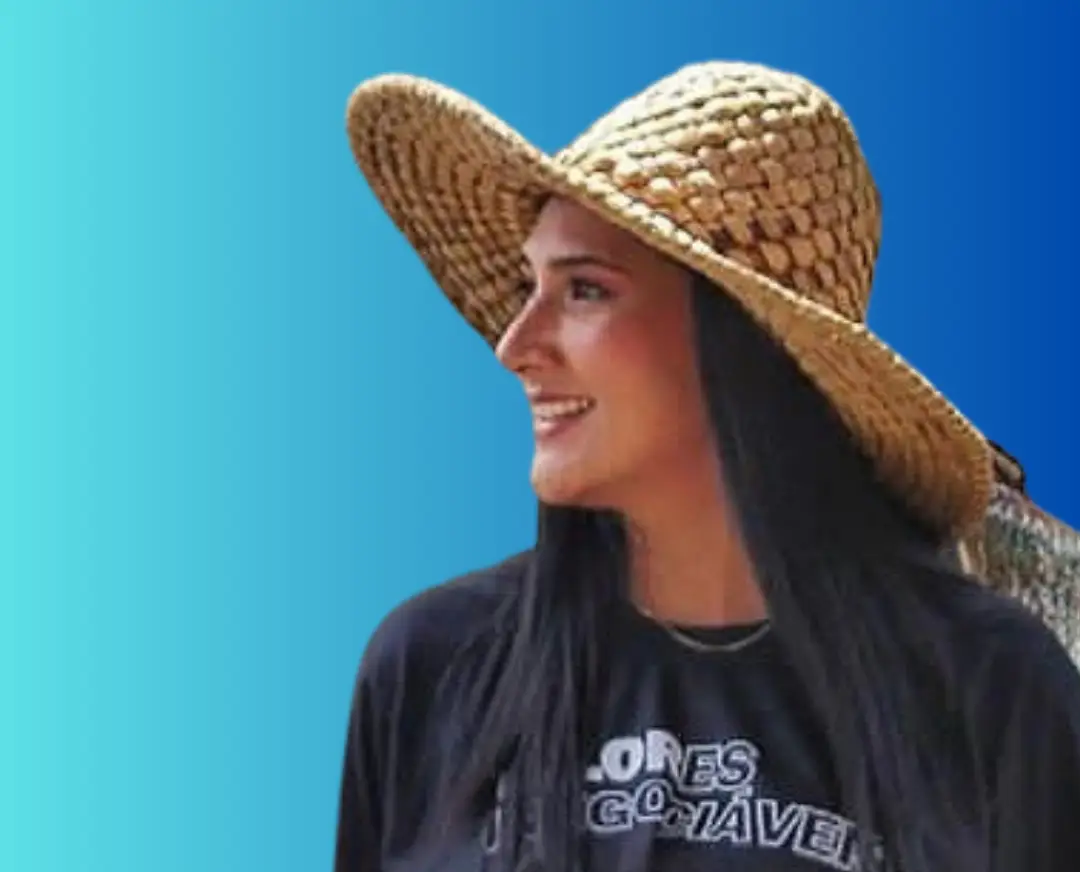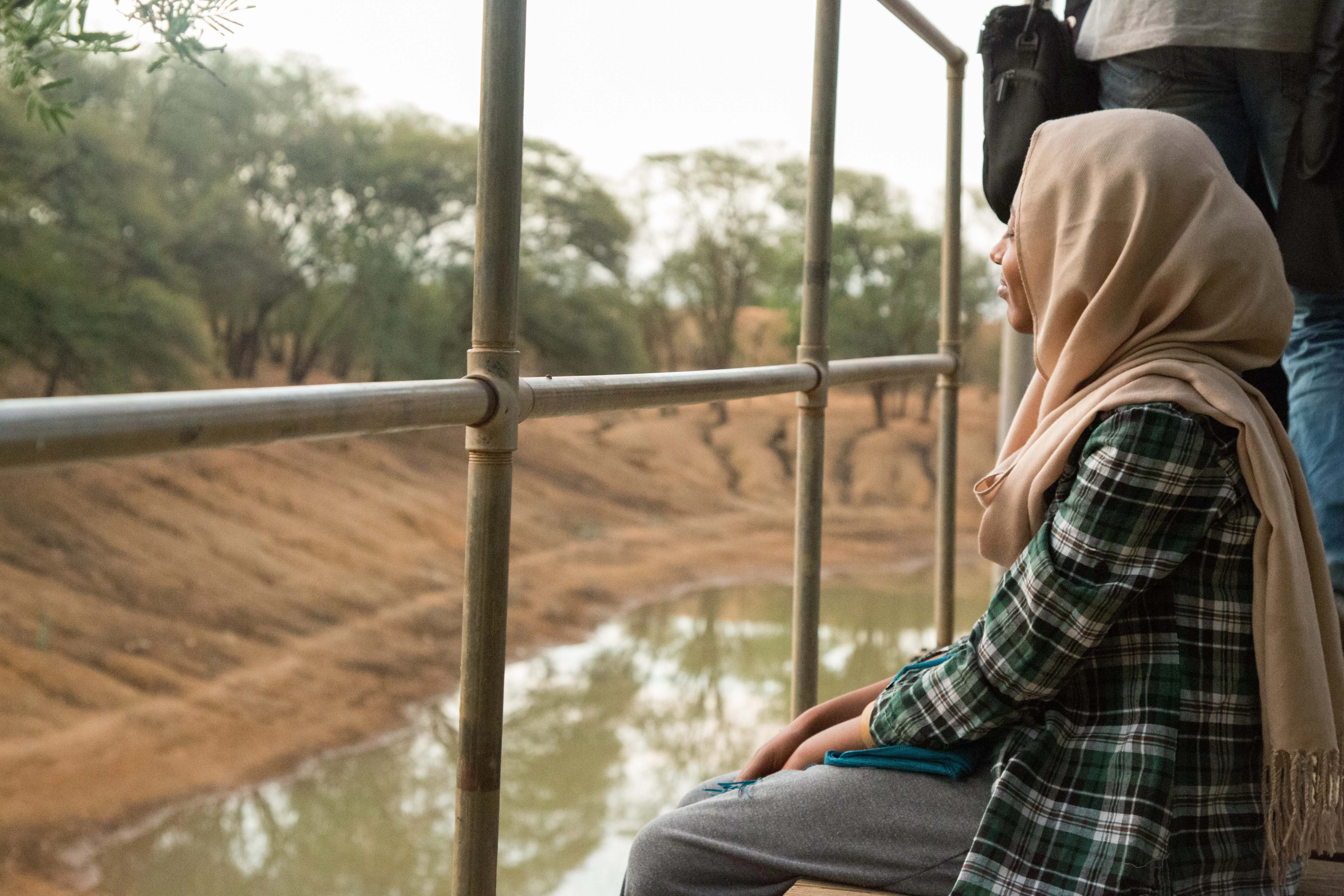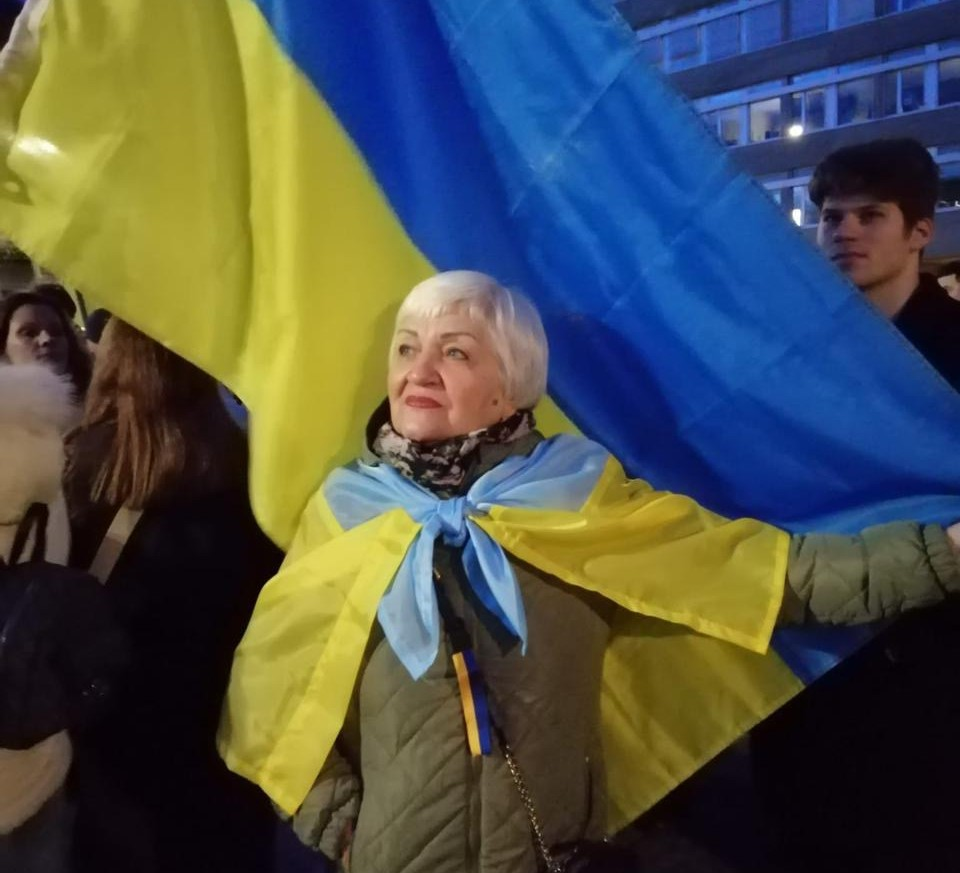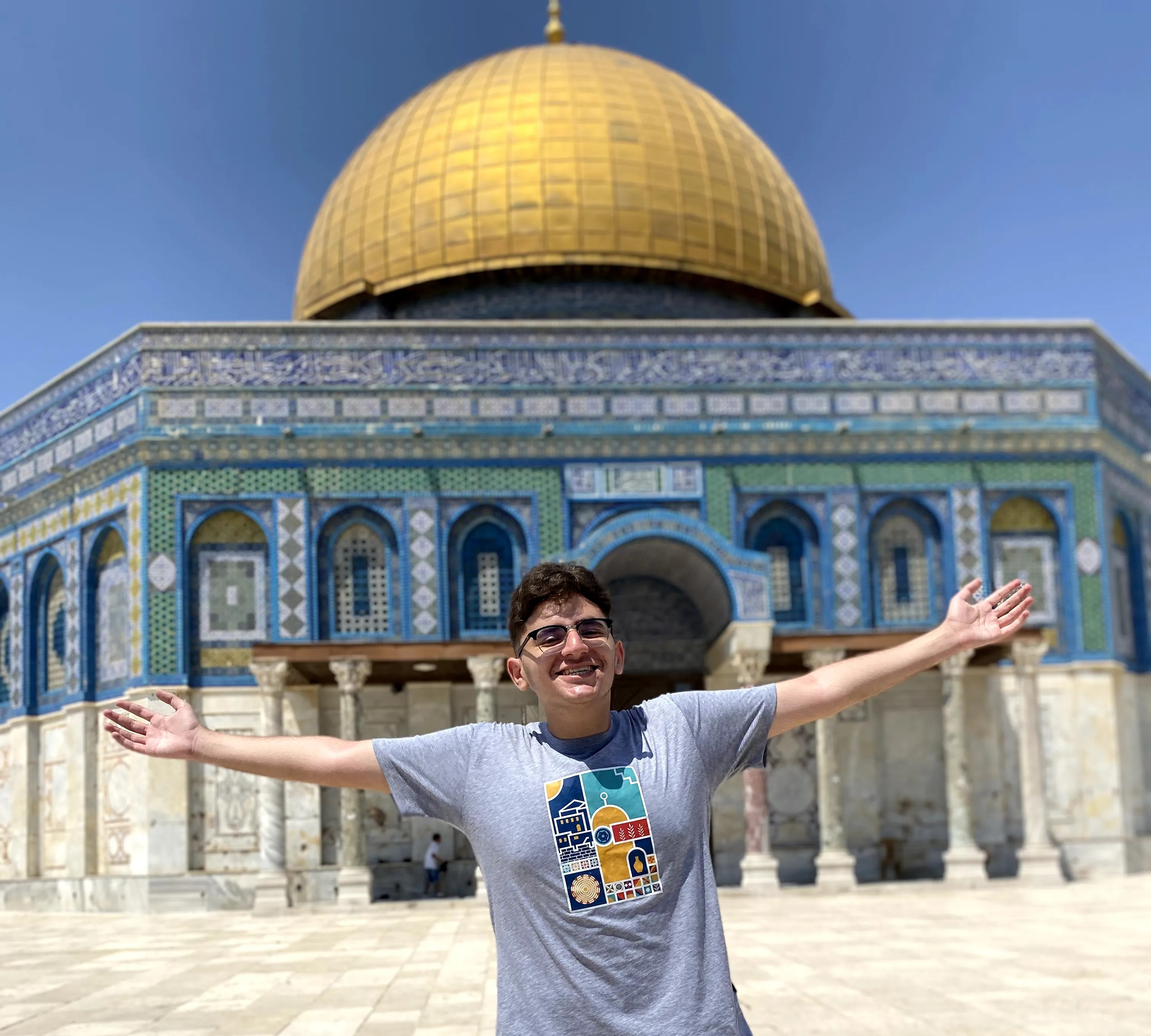
My story is about a person who faced forced migration, completely unplanned, after actively participating as a journalist and community leader in Venezuela. Due to my involvement, I was politically persecuted. I constantly reported to the community about the lack of communication and limited access to information faced by the Venezuelan people, particularly concerning the country's political and economic crisis. When I started receiving threats, the border with Brazil was closed due to the COVID-19 pandemic. However, considering the safety of myself and my family, I felt I couldn't wait and decided to leave Venezuela through the "trochas," which are irregular routes used to cross the border. I had no personal belongings or documents, only my daughter with me.
I stayed in the border territory for four months before eventually moving to the capital of a Brazilian Northern State, where it was safer. Even there, I continued to denounce the actions of the military regime towards migrants and the Venezuelan population, as well as the human rights violations occurring at the border on the Venezuelan side. The ongoing humanitarian crisis in the country, which persists to this day, needs to be highlighted. People are starving.
After arriving in Brazil, I continued producing online content to let the Venezuelan people who had threatened me know that I had left the country, in order to protect my family from potential harm. I also wanted to keep the community informed. Over time, the videos I created began to circulate throughout the entire country, and people directly sought me out to understand how they could flee to Brazil, where they could find safety and stability.
While all of this was happening, I felt that while I was trying to help so many others, I didn't fully experience and process my own journey. My first migration was to Colombia in late 2017, where I stayed for a year. I eventually returned to Venezuela for personal reasons but had to flee to Brazil in February 2019. So many things occurred during both displacements that sometimes I feel I may not have fully acknowledged or processed all the events that took place. Perhaps, in my efforts to assist others, I unintentionally overlooked my own experiences.
I have been in Brazil for four years, and there are still days when I don't feel entirely comfortable, mainly because of pre-existing social groups in society that are restrictive and have a hard time accepting newcomers into their circles of friends. However, I am a resilient person, and I have learned not to let these things affect me too much. I am strong, and in uncomfortable situations, I have learned to let go and not carry those negative feelings with me in the long run. Unfortunately, I have also experienced discrimination on social media, where I have been subjected to offensive comments.
On the other hand, I have felt very welcomed in the country, particularly by people working in NGOs, humanitarian organisations, and public defenders. These individuals value my work and my advocacy for the Venezuelan people, and it truly nourishes my soul. It is heartening to know that there are many people in this host country who believe in my work as a community communicator and advocate. I continue with the goal of informing people from my home country, as well as other migrants, about their rights and responsibilities when migrating to another country, and I won't stop.
I have learned many lessons throughout my migration journey. For example, in Venezuela, there was no culture of understanding human rights, racial issues, or gender perspectives. Racism and xenophobia were prevalent in the country. My mother is Colombian, and my father is Brazilian, but since I was born and raised in Venezuela, my experience was unique. It was only during my migration process to Brazil that I began to develop social and humanitarian consciousness. Through this journey, I had the opportunity to interact with extremely vulnerable people and deepen my sense of empathy.
What I am most proud of is that I live for migration. There is no separation. When the borders were closed, an ordinance declared the impossibility of obtaining documentation, even for those who entered through irregular routes. At the same time, fake news about the border being open spread, leading many people to come to Brazil. Migrants and refugees were unable to find shelter and ended up living on the streets. During this period, my work as a journalist was especially significant. I went to the border and provided as much information as I could to the 80 people who were there. I also reported on immediate deportations, being the only person in the region doing so, exposing the illegal and harsh nature of these actions. As a result of the reports and visibility, NGOs started assisting people and providing them with shelter. I shared my contact information with families and managed to relocate some of them to other parts of Brazil. It was gratifying for me to see them safe and living with a minimum level of dignity during that initial emergency period, knowing that I made a difference in their migration process. A few months later, the border reopened, and people were able to migrate, obtain documentation, and find regular shelter.
At present, it is difficult for me to say if I truly have a home. I grew up in the border region of Venezuela, with a Colombian mother, and I have a deep connection to all three countries (Venezuela, Brazil, and Colombia). However, this feeling of being without a defined home has made me extremely resilient and adaptable. I have been living in an apartment for four years where I feel comfortable, but I don't have an emotional attachment to it. I haven't hung any pictures or decorations; it lacks personalization. In other words, home is not a physical place for me. When I visit my hometown, I feel at home, but it is challenging to be there due to the many situations of extreme necessity that I confront. Sometimes, it feels like being a war journalist.
Venezuela is a country where more than 90% of the population currently lives below the poverty line, surviving on less than $3.2 a day. It is indeed difficult to accept such a harsh reality. Ultimately, I still haven't found a definitive answer to where home is, except within myself. I have come to accept that I may not have a clear answer to that question.
Regarding the difficulties of leaving, which are countless, my perception is that everything I left behind is no longer the same. Everyone is gone, and my house has been robbed nine times. Everything has changed. The process of pain was a daily struggle, including a sense of longing for my homeland. However, in my case, unfortunately, that homeland no longer exists. I believe that many Venezuelans feel the same way. My people have suffered greatly.
Being a migrant, and the daughter of migrants, already changes everything. Today, as a Brazilian, despite being fully integrated and welcomed in society, I sometimes find myself in a kind of limbo, experiencing the struggles faced by returnees in Brazil. These are Brazilians who spent decades living in Venezuela and had to return due to the economic crisis, or children of Brazilians who also lived in the country and have now migrated to Brazil. It is a complex scenario because, upon returning to Brazil, they encounter the same difficulties faced by other migrants, but they do not have access to the same support that refugees receive. For example, there are college admissions that offer specific spots only for individuals recognized as refugees in the country. I confess that I have considered renouncing my nationality (which I received from my father) and seeking refugee status in the country since I did flee from Venezuela. However, I have found other ways. Since I managed to cross the border, I have been working and living through migration, and I finally feel integrated.
Living in a single-parent family has also made my migration process quite complex, with specific challenges arising from not having a support network and being solely responsible for my daughter's well-being. The world has paid little attention to the intersection of being a single parent and the context of migration, failing to consider the increased risks of poverty and exclusion from social protection. Additionally, dealing with legal issues becomes quite complex. For example, I cannot demand child support from my daughter's father since he doesn't live in Brazil. Even in simpler matters, such as not having anyone to leave my daughter with, sometimes she has to be home alone, which I know is not safe.
My daughter was also deprived of many rights throughout the whole process because it was just the two of us. For example, she only started going to school this year, despite us being in Brazil for four years. However, things are settling down now.
I want to share that I got involved in a working group focused on diasporas from Latin America and the Caribbean. In this group, 22 women working in NGOs fight for single mothers who need to migrate or flee. We won't give up on them.
My message to the world would be that the best thing God ever did was to give us one day after another. Today, it may hurt a lot, but tomorrow it will hurt less. Nowadays, I am truly certain that we can do anything and overcome all these obstacles. It's not about romanticizing; I've experienced it.
My goal is to achieve peace in the world, bridging different human beings and contexts, and above all, to have more opportunities to help other people in new ways. I would love to be elected to the State Council of Migrants in Roraima, the state where I currently live, to promote effective changes. I would also love to open my own NGO and bring more attention to the ongoing violations and issues in my country. I feel that the press is not inclusive; it is often elitist and tends to focus solely on the negative aspects of migration. It fails to show the comprehensive and real potential of migrants and refugees, what they are contributing to the country, or what they could offer if given the opportunity. Brazil's growth is also significantly driven by migrants and refugees. But as long as I can't do more, I will continue to share as much information as I can on my personal page, https://www.instagram.com/yecamorais/.
I truly wish people would be more aware that migrants are human beings, just like anyone else. This is especially important for religious people who often make distinctions. We should constantly remember that Jesus, for example, was a refugee and value the experiences of each individual. Finally, I would like to see more equality, especially from employers, as migrants, refugees, and asylum seekers often do much of the hard work but receive much smaller financial returns. No one should be exploited under any circumstances.
UN Women interview: https://www.youtube.com/watch?v=E8zBscIPe9E


